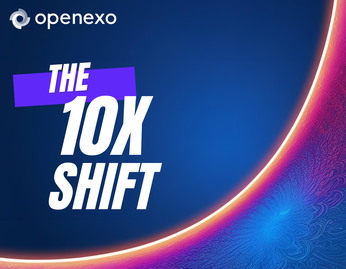
Could Cooperatives be the Ultimate Expression of the ExO Model's Community Attribute?
Cooperatives take the ExO community concept to the next level by transforming customers into owners, aligning incentives, and driving innovation through shared decision-making and profit-sharing.
In the world of exponential organizations (ExOs), community is powerful. But what if we told you there's a business model that takes the ExO community concept to a whole new level? Enter the cooperative – a model where community doesn't just participate, it owns.
The ExO model, popularized by Salim Ismail, emphasizes the power of community engagement. Traditionally, this means leveraging external resources and fostering user communities. But cooperatives flip the script entirely.
Imagine a business where your customers aren't just buyers or users – they're owners. That's the cooperative model in a nutshell. It's not just about implementing community; it's about embodying it.
Let's break it down:
- Ownership: In a cooperative, community members literally own the company. This goes beyond the ExO model's idea of community engagement – it's community embodiment.
- Decision-making: Cooperatives operate on a democratic basis. Members have a say in major decisions, truly putting the power in the community's hands.
- Profit-sharing: Unlike traditional models where profits go to shareholders, in cooperatives, profits are distributed among members. Talk about aligning incentives!
- Loyalty: When your customers are your owners, you've created the ultimate loyalty loop. This amplifies the network effects that ExOs strive for.
- Innovation: With a vested interest in the company's success, cooperative members are more likely to contribute ideas and feedback, supercharging innovation.
But here's the kicker – cooperatives aren't just theoretical. They're thriving in various sectors. In particular, they tend to take root in difficult or turbulent economic times. Take REI in retail or Ace Hardware in the consumer hardware space. These aren't small players; they're industry giants powered by their communities.
Does this mean every ExO should become a cooperative? Not necessarily. However, it does highlight an intriguing possibility for organizations looking to truly embody the community attribute of the ExO model.
The cooperative model shows us that when it comes to community implementation, ownership might just be the ultimate frontier. It's not just about having a community – it's about being one.
📒️ The books Everything for Everyone and Ours to Hack and Own are great reads in this context.
As we continue to explore the boundaries of exponential organizations, perhaps it's time to look at cooperatives not just as an alternative business model, but as a potential apex of community integration in the ExO framework.
In the race to harness the power of community, those who are owned by their community might just have the ultimate edge.
ExO Insight Newsletter
Join the newsletter to receive the latest updates in your inbox.








